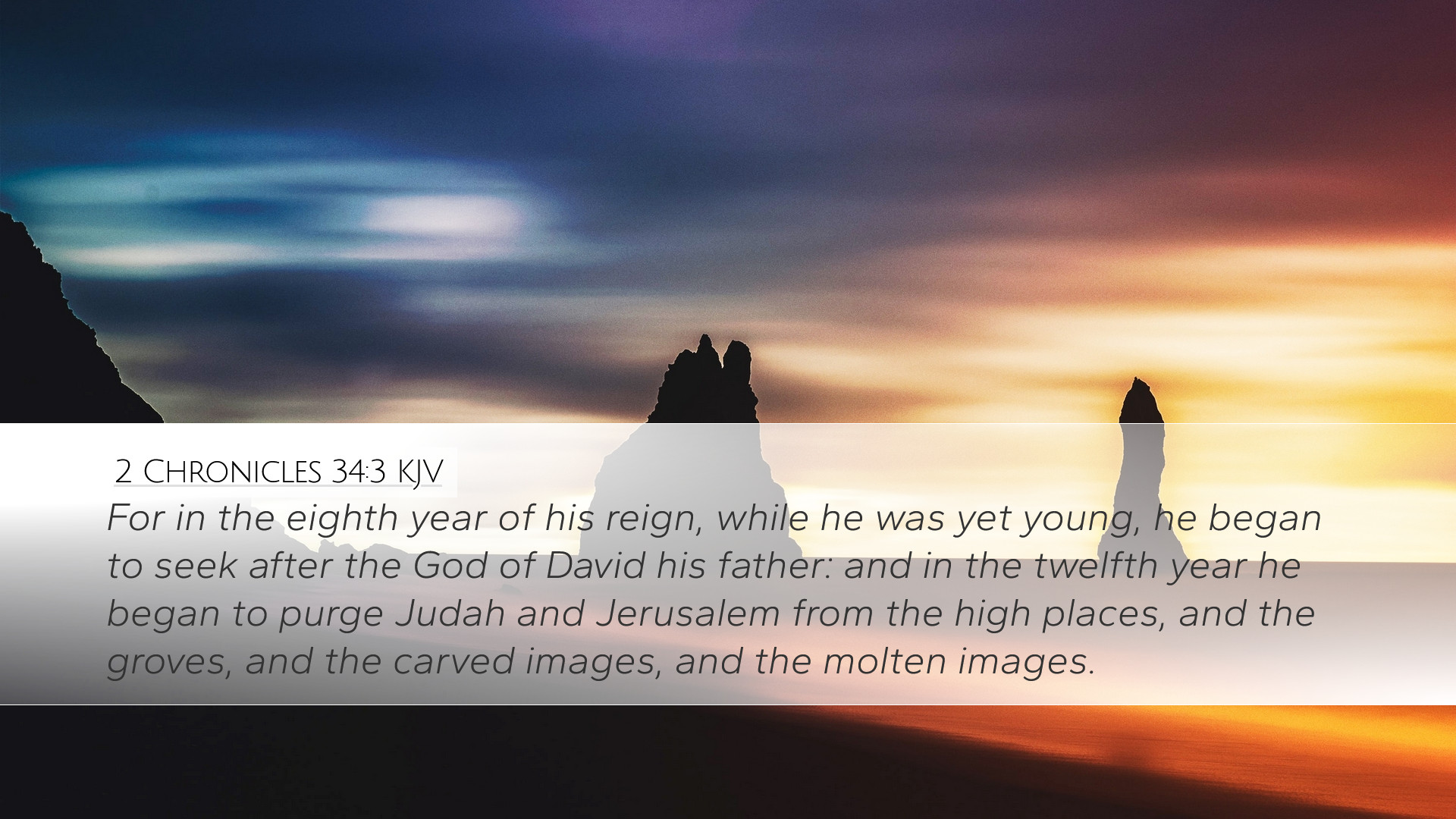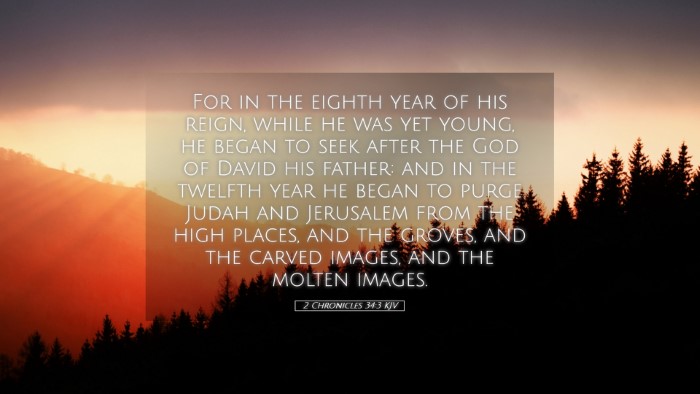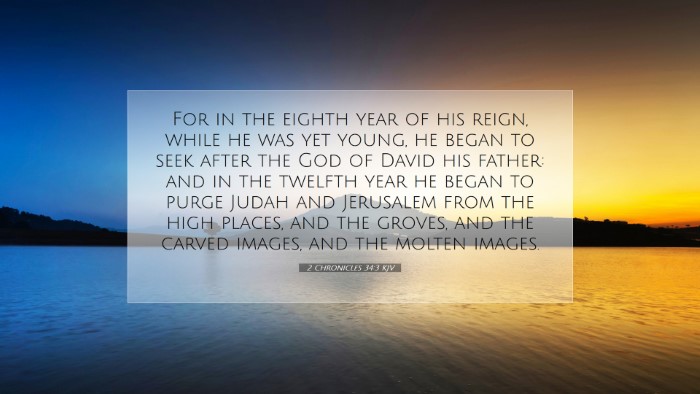Commentary on 2 Chronicles 34:3
Verse: "For in the eighth year of his reign, while he was yet young, he began to seek after the God of David his father: and in the twelfth year he began to purge Judah and Jerusalem from the high places, and the groves, and the carved images, and the molten images."
Introduction
The verse under consideration, 2 Chronicles 34:3, is pivotal in understanding the reign of King Josiah, a young ruler whose actions marked a significant religious reform in Judah. This commentary synthesizes insights from notable public domain commentaries, including those by Matthew Henry, Albert Barnes, and Adam Clarke, to provide a comprehensive interpretation that is beneficial for pastors, students, theologians, and Bible scholars.
Contextual Background
Josiah ascended to the throne at a mere eight years of age after the assassination of his father, Amon. His reign is marked by a profound transformation in the spiritual landscape of Judah. The context of his reign is critical, as it follows a period of significant idolatry and corruption, making his youthful commitment to God all the more remarkable.
Historical Significance
Matthew Henry notes that Josiah's reign, which began around 640 BC, occurred during a time of decline in Israel’s spiritual fidelity. The chronicler emphasizes Josiah's seeking of God, suggesting a deep longing for genuine worship and righteousness amid a backdrop of spiritual decay. Thus, his intentions were crucial in understanding kingship not merely as a political role but as a spiritual one.
Spiritual Awakening
Albert Barnes highlights that the term "seek after the God of David" illustrates Josiah's recognition of the need for a genuine relationship with the true God. This seeking implies more than mere acknowledgement; it denotes an active pursuit of God’s presence, reflecting a heart inclined towards spiritual renewal. Josiah’s actions are displayed as commendable compared to his predecessors, who often led the nation away from God.
Theological Implications
This portion of Scripture presents significant theological implications regarding leadership and spiritual awakening in a nation. It challenges the notion that age and experience are prerequisites for seeking God’s ways effectively. Instead, it emphasizes the profound impact of a heart attuned to divine truth, regardless of one's age or socio-political experience.
Age and Spiritual Maturity
Adam Clarke observes that Josiah’s pursuit of God began while he was still young, which sends a vital message about the potential for spiritual maturity at an early age. This principle encourages youth within the church and serves as an affirmation that God can work powerfully through individuals irrespective of their years.
Purging Idolatry
In the latter part of the verse, the systematic purging of Judah and Jerusalem from high places and idols signifies a proactive response to his spiritual discovery. Matthew Henry provides insights into the significance of the high places; they represent false worship that had infiltrated the religious practices of God’s people. Reform must begin with removing anything that distracts from pure worship.
Practical Applications
This passage prompts contemporary believers to reflect on their spiritual journeys and the importance of seeking God zealously. It poses crucial questions for introspection:
- How are we pursuing a relationship with God? Are we following the example of Josiah in our youth or in our present state?
- What high places exist in our lives and communities? Identifying and addressing modern forms of idolatry is essential in our spiritual practice.
- Leadership in faith: How can we encourage those in positions of authority to pursue and implement true biblical principles in their lives and governance?
Conclusion
In summary, 2 Chronicles 34:3 serves as an inspiring example of how a young king sought after God and initiated significant reforms in Judah. The insights from Matthew Henry, Albert Barnes, and Adam Clarke reveal the layers of meaning in this passage—encouraging spiritual seeking, emphasizing the need for purity in worship, and validating the role of youth in spiritual leadership. For pastors, students, theologians, and Bible scholars, this text challenges us to actively pursue holiness and to recognize the imperative of removing distractions from our worship of God.


